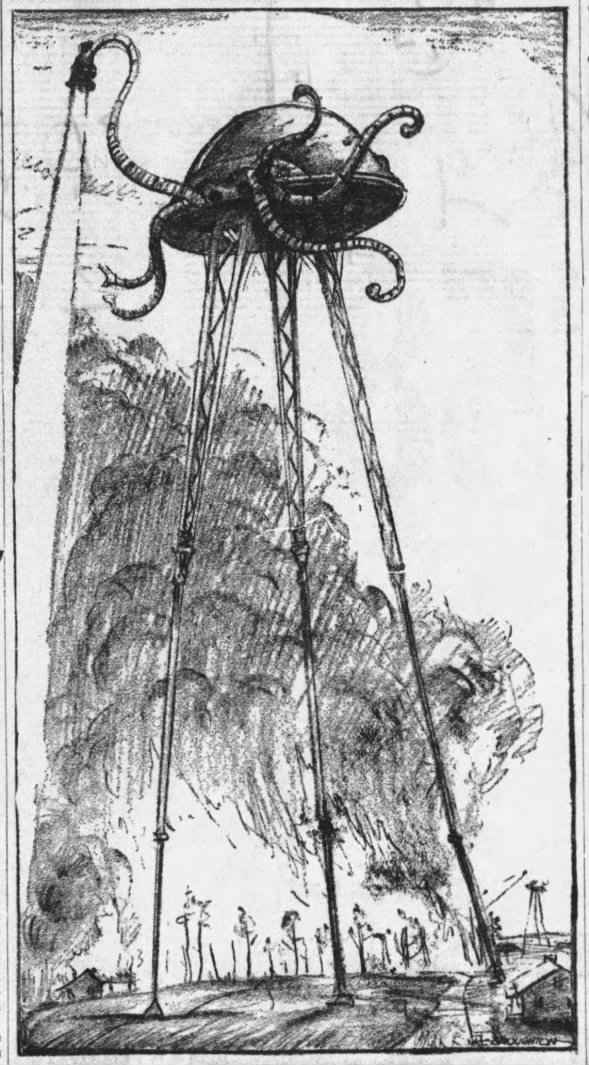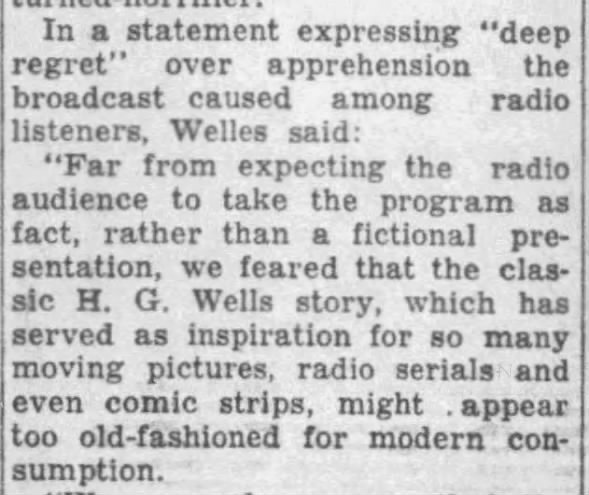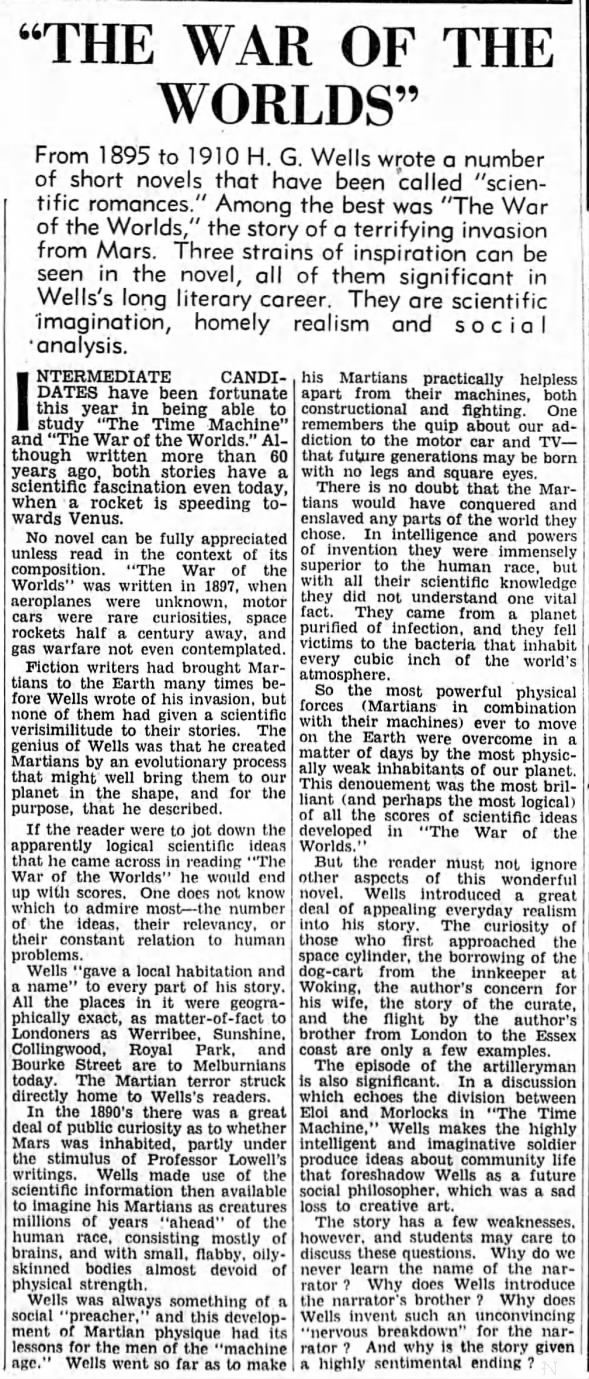H.G. Wells’ The War of the Worlds has been, since its publication in 1898, one of fiction’s most lasting science-fiction stories. In 1938 a radio broadcast of the novel famously caused real-life panic. Multiple movie adaptations have brought the horror of the tripods into modern settings. And this year’s new BBC television series takes the story back to 1905, just a handful of years after the book’s first publication.

Setting this story in a time very like H.G. Wells’ own makes the technological superiority of the Martians all the more clear. It may also better emphasize the destruction of comfortable structure—a society of rules and customs—by a force that simply doesn’t care.
And yet the horror of The War of the Worlds transcends generations and even technology. Orson Welles, who directed and narrated the 1938 radio performance that made such a stir, expressed surprise at listeners’ reactions. He’d worried the story might seem “too old-fashioned.” But the frenzied fear of invasion that resulted just goes to show how pertinent such stories can remain decades—and centuries—later.

Perhaps the greatest reason for this was Wells’ emphasis on surrounding the fictional with the real. His stories were called “scientific romances,” an acknowledgement of the inspiration he found in scientifically-based speculation. He gave his aliens evolutionary traits, reasons for their existence and appearance, and even based their defeat on science we’ve witnessed in our own Earth-bound history. And among all this science was sprinkled a healthy dose of humanity, in which readers, listeners, and viewers see themselves and people they know.

H.G. Wells had flaws too, which are reflected in his work. Women play little part in his stories, a fact he acknowledged in this contemporary interview, and that is remedied in the new BBC series. He held many troubling beliefs on race and religion. And as the article above states, some found and continue to find his endings too sentimental, and some plot points irrelevant. Nevertheless, H. G. Wells and his stories continue to fascinate and inspire more than a century later, which is perhaps the best review an author can hope for.
Find more clippings about H.G. Wells, The War of the Worlds and similar topics with a search on Newspapers.com.
Like this post? Try one of these:


I see nothing sentimental about the ending of War of the Worlds. It’s simply a statement of fact. Some of the smallest living things on Earth did the aliens in. People didn’t have to fire a shot. For this reason I believe aliens haven’t come here and never will. They may observe us from a distance but unless they have a universal antidote to every infection in the universe it would be wise for them to stay off the planet.